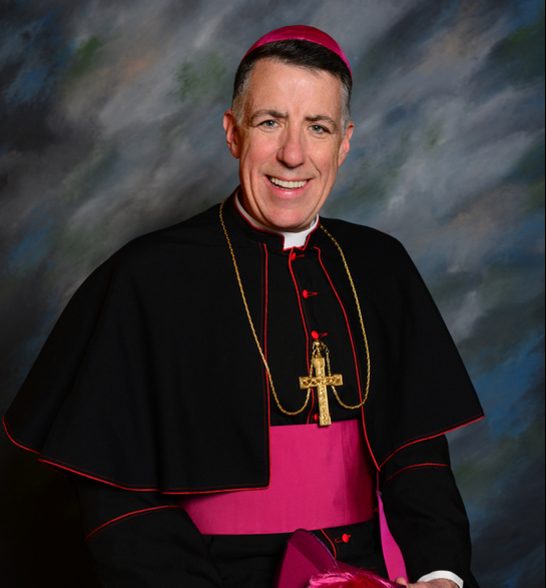A new study highlights the importance of deacons in the US Church.
The U.S. Conference of Catholic Bishops’ (USCCB) Committee on Clergy, Consecrated Life and Vocations has shared the results of the study A Portrait of the Permanent Diaconate: A Study for the United States Conference of Catholic Bishops 2020-2021. This annual survey, conducted by the Center for Applied Research in the Apostolate (CARA) at Georgetown University, provides an illustration of the state of the permanent diaconate in the United States, including the number of those ordained and retired in the past year, percentages of those involved in various Church ministries, and other demographic information.
Bishop James F. Checchio of Metuchen, chairman of the Committee on Clergy, Consecrated Life and Vocations, emphasized the importance of the permanent deacons’ witness in the Church today. “As our world continues to grapple with the effects of the COVID-19 pandemic, permanent deacons provide an encouraging witness to the love and mercy of Christ. They bring the light and presence of Jesus into many different areas of society – preaching the Gospel in their jobs, within their families, to the poor, and among their broader communities. As this new study is released, I encourage my brother bishops and all the faithful to say a prayer of thanksgiving for the good ministry of our permanent deacons in the United States.”
With contact information provided by the National Association of Diaconate Directors and CARA’s Catholic Ministry Formation database, CARA contacted the 187 dioceses and eparchies in the United States who belong to the USCCB and have an active Office of the Permanent Diaconate. Of this total, 145 responded to the survey for an overall response rate of 77%. Some of the major findings of the report are:
- Responding dioceses with the largest number of permanent deacons include Chicago (852), Los Angeles (426), and Galveston-Houston (367). Adjusting for Catholic population size, Latin Rite dioceses with the lowest ratio of Catholic per permanent deacon include Lexington (508 Catholics to every deacon), Rapid City (640 Catholics to every deacon), Bismarck (676 Catholics to every deacon), and Jefferson City (703 Catholics to every deacon).
- The 144 Latin Rite dioceses that responded to the survey report a total of 15,873 permanent deacons (both active and non-active). The single eparchy that responded reported a total of 11 permanent deacons. Extrapolating to include dioceses and eparchies that did not respond to the survey, it can be estimated that there are as many as 19,008 permanent deacons in the United States today.
- Latin Rite dioceses report having 12,292 permanent deacons active in ministry; the single eparchy reported 11 active permanent deacons. Extrapolating to include dioceses and eparchies that did not respond to the survey, it can be estimated that there are 14,722 deacons active in ministry in the United States today, or about 78% of all permanent deacons.
- During the 2020 calendar year, 587 new permanent deacons were ordained in responding dioceses. At the same time, 410 deacons retired from active ministry and another 378 died. As is the case with priests in the United States, there are not enough new permanent deacons being ordained to make up for the numbers who are retiring from active ministry and dying each year.
- Nine in ten (93%) active permanent deacons are currently married. Four percent are widowers and 2% have never been married.
- Ninety-five percent of active permanent deacons are at least 50 years old. About a fifth (21%) are in their 50s, two-fifths (40%) are in their 60s, and two-fifths (35%) are 70 or older.
- Seven in ten active permanent deacons (72%) are non-Hispanic whites. One in five (215) are Hispanic/Latino, 4% are Asian/Pacific Islander, and 3% are African American.
- Among permanent deacons who are financially compensated for ministry, 26% are serving in a “parish ministerial position” other than pastoral care of parish(es) (Canon 517.2), so they are serving in ministerial positions such as Director of Religious Education or Youth Minister. Additionally, one in six (16%) works in parish non-ministerial positions (e.g., administration, business, finance) and fewer than one in ten (8%) are entrusted with the pastoral care of one or more parishes.









